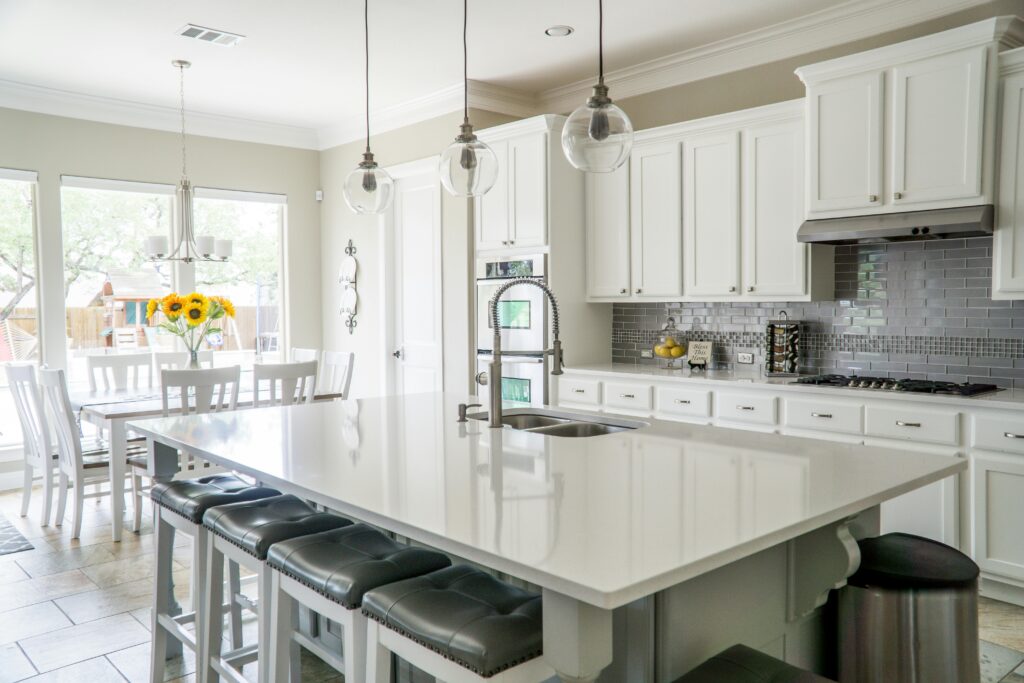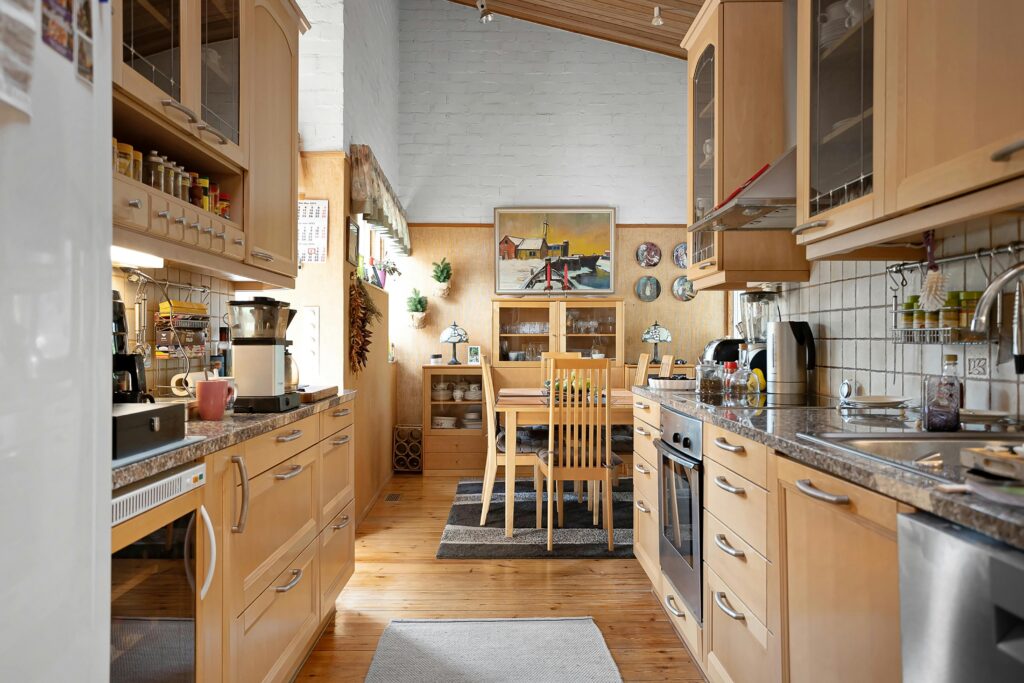Introduction
Custom home improvement is the process of renovating or remodelling a home to tailor it to the specific needs, preferences, and lifestyle of the homeowner. Unlike generic renovations, custom home improvements focus on personalization and uniqueness, transforming a house into a dream home.

Benefits of Custom Home Improvement
One of the primary benefits of custom home improvement is the ability to personalize every aspect of your living space. From selecting materials and finishes to designing layouts that suit your lifestyle, customization allows homeowners to create a home that reflects their personality and taste.
Additionally, custom home improvements can enhance functionality and comfort. By optimizing the layout and design of various rooms, homeowners can create spaces that better accommodate their daily activities and routines. Whether it’s a redesigned kitchen with ample storage and workspace or a luxurious master bathroom retreat, custom renovations can significantly improve the livability of a home.
Furthermore, investing in custom home improvements can increase the property’s value. Potential buyers are often willing to pay more for a home that has been carefully designed and upgraded to meet modern standards and preferences. Therefore, custom renovations not only improve the quality of life for current homeowners but also offer a lucrative return on investment in the future.
Custom Home Improvement Ideas
When it comes to custom home improvement, the possibilities are endless. Here are some popular ideas to consider for transforming your living space:
Kitchen Renovations: Upgrade your kitchen with custom cabinets, countertops, and appliances to create a functional and stylish culinary space.
Bathroom Remodels: Transform your bathroom into a spa-like oasis with custom tile work, luxurious fixtures, and innovative storage solutions.
Outdoor Living Spaces: Extend your living space outdoors with a custom-designed patio, deck, or outdoor kitchen, perfect for entertaining guests or relaxing with family.
Home Office Design: Create a productive and inspiring home office with custom-built desks, shelving, and storage solutions tailored to your workflow and needs.
Energy-Efficient Upgrades: Invest in energy-efficient windows, insulation, and HVAC systems to reduce utility costs and minimize your carbon footprint.
Smart Home Technology Integration: Incorporate smart home technology, such as automated lighting, thermostats, and security systems, to enhance convenience, comfort, and security.
Factors to Consider Before Starting a Custom Home Improvement Project
Before embarking on a custom home improvement project, it’s essential to consider several factors:
Budgeting: Determine your budget and prioritize your renovation goals to ensure that you allocate funds effectively.
Finding the Right Contractor: Research and interview multiple contractors to find one with the necessary expertise, experience, and reputation for quality workmanship.
Obtaining Permits and Permissions: Make sure to obtain any required permits and permissions from local authorities before starting construction to avoid costly delays or fines.
Timeframe and Scheduling: Establish a realistic timeframe for your project and work with your contractor to create a detailed schedule that outlines milestones and deadlines.
DIY vs. Hiring Professionals
While some homeowners may be tempted to tackle home improvement projects themselves, there are several factors to consider before deciding whether to DIY or hire professionals:
Pros and Cons of DIY: DIY projects can be cost-effective and rewarding but may require significant time, effort, and skill. Additionally, mistakes or errors could end up costing more to fix.
Benefits of Hiring Professionals: Hiring professionals ensures quality workmanship, adherence to building codes and regulations, and timely completion of the project. Professionals also have access to specialized tools and materials, enhancing the overall quality and durability of the renovations.
When to DIY and When to Hire: Simple projects like painting or minor repairs may be suitable for DIY enthusiasts, while complex renovations requiring structural changes or electrical work are best left to the experts.
Trends in Custom Home Improvement
The custom home improvement industry is constantly evolving, with new trends and innovations shaping the way we design and renovate our homes:
Sustainable and Eco-Friendly Designs: More homeowners are embracing sustainable building practices and eco-friendly materials to minimize environmental impact and reduce energy consumption.
Multifunctional Spaces: With the rise of remote work and flexible lifestyles, homeowners are seeking versatile spaces that can serve multiple purposes, such as home offices that double as guest bedrooms or workout studios.
Smart Home Automation: Integrating smart home technology allows homeowners to control and monitor their homes remotely, from adjusting the thermostat to managing security cameras, enhancing convenience, comfort, and security.
Minimalist and Modern Aesthetics: Clean lines, neutral colours, and minimalist design elements are becoming increasingly popular, creating sleek and sophisticated living spaces that prioritize simplicity and functionality.
Successful Custom Home Improvement Projects
To illustrate the transformative power of custom home improvement, let’s take a look at some real-life examples:
Before and After Transformations: From dated kitchens and bathrooms to modern, luxurious retreats, these before and after photos showcase the dramatic impact of custom renovations on the overall look and feel of a home.
Client Testimonials: Hear from satisfied homeowners who have experienced the benefits of custom home improvement firsthand, from increased comfort and functionality to higher resale values and improved quality of life.
Common Challenges and How to Overcome Them
While custom home improvement projects offer numerous benefits, they can also present challenges along the way:
Unexpected Expenses: Budget overruns and unforeseen complications can derail a project if not properly accounted for. To mitigate this risk, it’s essential to budget for contingencies and work closely with your contractor to identify potential challenges upfront.
Delays in Construction: Weather, supply chain disruptions, and unforeseen complications can cause construction delays, impacting the project’s timeline and budget. Effective communication and proactive planning can help minimize delays and keep the project on track.
Communication Issues with Contractors: Clear and open communication is key to a successful home improvement project. Establishing expectations, setting regular progress meetings, and addressing any concerns or issues promptly can help ensure that everyone is on the same page throughout the renovation process.
Conclusion
Custom home improvement offers homeowners the opportunity to transform their living spaces into personalized, functional, and stylish retreats. By investing in custom renovations, homeowners can enjoy a home that reflects their unique tastes and lifestyle while increasing comfort, functionality, and property value. Whether it’s a kitchen remodel, bathroom renovation, or outdoor living space upgrade, custom home improvement projects can enhance the quality of life for homeowners and their families for years to come.
FAQs:
- How much does a custom home improvement project typically cost?
The cost of a custom home improvement project can vary significantly depending on the scope of work, materials used, and location. It’s essential to establish a budget upfront and obtain multiple quotes from reputable contractors to ensure that you’re getting a fair price for the desired renovations.
- How long does a custom home improvement project take to complete?
The duration of a custom home improvement project depends on several factors, including the size and complexity of the renovations, availability of materials, and contractor scheduling. While some projects can be completed in a matter of weeks, larger-scale renovations may take several months to finish.
- Do I need to hire an architect for a custom home improvement project?
While hiring an architect is not always necessary for minor renovations, complex projects involving structural changes or additions may benefit from professional design services. Architects can help translate your vision into detailed plans and ensure that the renovations comply with building codes and regulations.
- How can I ensure that my custom home improvement project stays within budget?
To keep your project within budget, it’s essential to establish a realistic budget upfront and stick to it as closely as possible. Work with your contractor to prioritize essential upgrades and identify areas where cost-saving measures can be implemented without sacrificing quality or safety.
- What should I look for when hiring a contractor for a custom home improvement project?
When hiring a contractor, look for reputable professionals with experience in custom home renovations, proper licensing and insurance, and positive reviews or testimonials from past clients. It’s also essential to communicate openly and clearly with potential contractors to ensure that they understand your vision and expectations for the project.


